
A coward boy fencer becomes invisible and matchless through a magic pill.

This period thriller concerns a very famous cat known as the "monster cat of Nabeshima". This cat, a symbol of vengeance in human disguise, takes revenge for the death of its master as well as for the corruption in the feudal system.

Getting an opportunity to meet with another half-Caucasian swordsman, Kyoshiro finds himself involved in a series of dangerous encounters.

As a child, Okin the one-armed one-eyed swordswoman was disfigured by Lord Daizen-dayu, who was after her family's most treasured possession, the famed Drenched Swallow sword. As an adult, she has become a skilled swordswoman and lives a carefree life with her adopted family. One day, Okin saves a girl from a group of yakuza, and in doing so, gets involved in a grand conspiracy involving religious leaders, government officials, the yakuza and Lord Daizen-dayu, the man who killed her father and mutilated her body...
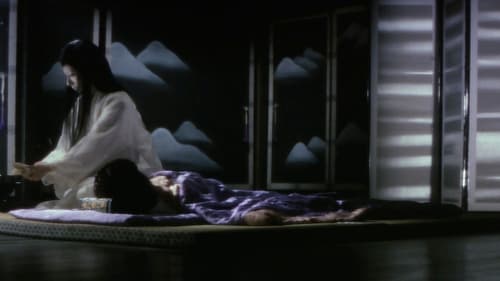
A master sculptor and his apprentice are trapped in a bad snow storm after finding a special tree for carving a statue for the local temple. Finding refuge in an abandoned hut they celebrate their luck in finding the tree but soon they are visited by the Snow Witch who freezes the sculptor to death but takes pity on the apprentice. He must promise to never speak of this or she'll return and kill him.

Hanpei is a gentle young samurai that loves flowers. One day, he witnesses an old man's quick draw of the sword. He is so impressed that he becomes the old man's pupil. Soon, Hanpei's skill of sword comes to attention of his lord. The lord orders him to assassinate a man...

Abare inu is a 1965 action-comedy film directed by Kazuo Mori. It is the fourth film in the series.

Sixth film in the series. A little boy who just wants to be a carpenter is at the center of a plot that might topple -- or save -- a mighty Clan, and while the swords of some angry samurai may not cause Kyoshiro much trouble, the deadly wiles of two women may be more difficult to survive!

Nezumi Kozō is the nickname of Nakamura Jirokichi, a Japanese thief and folk hero who lived in Edo during the Edo period. His exploits have been commemorated in kabuki theatre, folk songs, jidaigeki, and modern pop culture.

раб
Yoso is truly a lost classic, set in the Nara Era (710-794), from Kinugasa Teinosuke the same writer/director who gave us the recognized classic Gate of Hell (Jigokumon, 1952) & the milestone silent surrealist masterpiece A Page of Madness (Kurutta Ippeji, 1926).
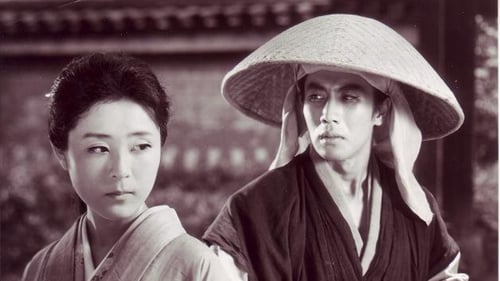
[Period covered: 1582-1594]. As the film opens, the warlod Nobunaga Oda rides to Iga Ayanokuni shrine. He is asked if he thinks he has destroyed all the ninja who opposed him and answers that he suspects that there may be more. A servant brings water and tests it first. The paige dies and we hear gunshots as two ninja flee the scene. His suspicions confirmed, Nobunaga oversees the execution of captured ninja and decides that, in the future, he needs a much crueler method of execution. The daimyo Hideyoshi comes to visit.
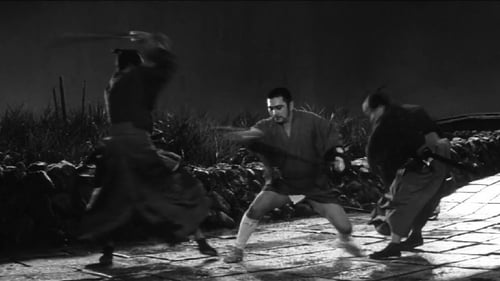
Returning to the village where a year before he had killed Hirate, a much-admired opponent, Zatoichi encounters another swordsman and former rival in love.
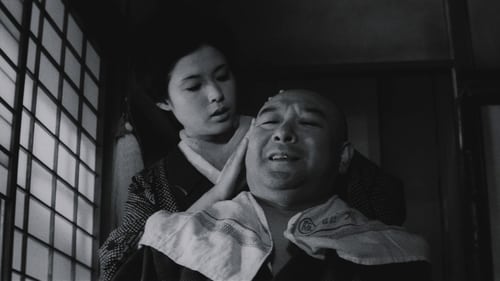
Kinnosuke Ishida
Satoko is a mistress by trade or fate: when her master, the silkscreen artist of the Kohoan Temple in Kyoto, dies, she is given to the temple's lascivious head priest Kikuchi. She is drawn to a melancholy young acolyte, Jinen, who has observed the profligacy of his cruel master and Satoko's utter dependence on the man. Jinen is both fascinated and disturbed by Satoko's interest in him; he is similarly caught between loathing of Kikuchi and of the dark circumstances of his birth and his own moral weakness. The story unfolds in a dreamlike manner—a flashback inspired by a now-infamous image on a silkscreen in the souvenir shop at the so-called Temple of the Wild Geese.

Disguised as a beggar monk, Ryunosuke is harassed along the road by the rowdy members of a country dojo or fencing school malingering outside their fencing hall. The third film in the Satan's Sword trilogy.
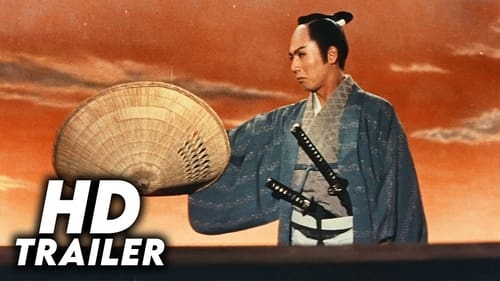
Two amiable samurai wind up on opposite sides of the vendetta between Lord Asano's retainers and the family of Lord Kira that led to the famous revenge of the 47 Ronin.

Film directed by Kenji Misumi.

During the Warring States era of early 17th century Japan, teenage princess Sen is besieged with other members of her family in Osaka Castle, by a rival force led by her grandfather.

1953 Hiroshi Inagaki movie.

Jidai-geki about the life of Yasubei Nakayama, a famous ronin who did participate in the revenge against Lord Kira Yoshinaka as detailed in Japan's famous epic Chushingura

Matsugoro is a poor rickshaw driver whose animated spirit and optimistic demeanor make him a favorite of the town. Matsu helps an injured boy, Toshio, and is hired by the boy's parents.

Heibei Debuchi
Ito Daisuke's wartime retelling of the Miyamoto Musashi story.
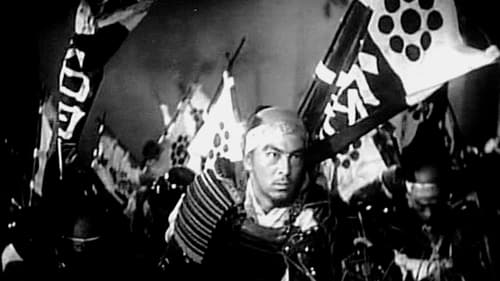
The life, adventures and exploits of warlord Date Masamune the One-eyed Dragon: his early youth as an aggressive warrior, the battles he won until subduing almost all his enemies, the lonely comprehension of knowing that he actually can not take over the whole country because he was born too late.

Shinnosuke Morikawa
It is a historical drama that follows Katsu Kaishu's efforts to surrender Edo Castle bloodlessly in the first year of the Meiji period.

There is an inn named Asano Ya in the port town, and a beautiful woman works there. Every year, during a local festival, travelling artists and teachers gather from all over the country, including sesame oil sellers and organ grinders. The day before the festival, trouble arises with some horses.

















